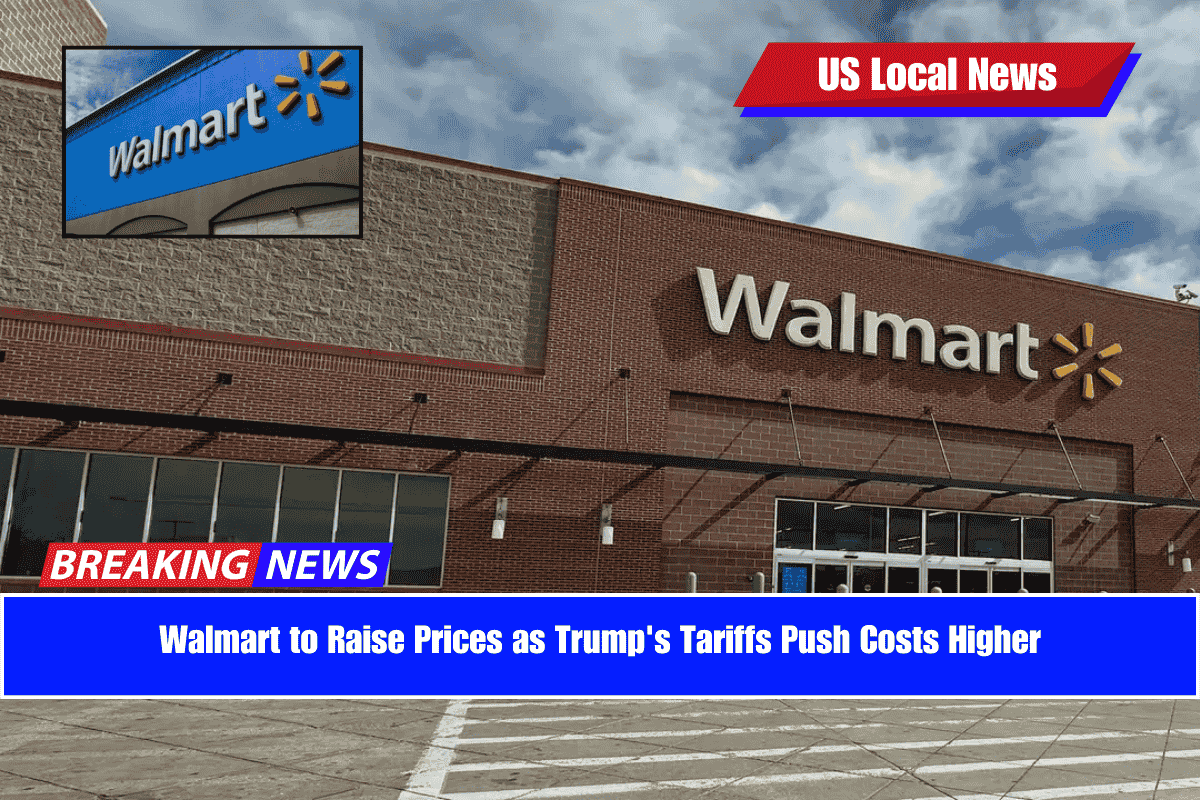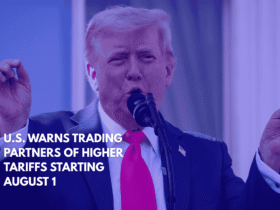Walmart, the world’s biggest retailer, has announced that it will soon raise prices due to the ongoing trade war led by President Donald Trump. The move is a clear sign that tariffs are starting to affect everyday consumers, even as some reductions have been made in recent weeks.
Why Walmart is Raising Prices
The company says it’s dealing with sharply rising costs for many of its products, especially those imported from countries like China. These added costs are coming from new tariffs introduced under President Trump’s trade policies. While Walmart plans to absorb some of the impact, the rest will be passed on to customers starting this month and continuing into early summer.
John David Rainey, Walmart’s Chief Financial Officer, told The Wall Street Journal that the price increases are happening at a speed and scale that he called “unprecedented.”
Impact on Walmart’s Profits
Walmart also reported a drop in profits for the first quarter of the year. The company made $4.45 billion, or 56 cents per share, compared to $5.10 billion, or 63 cents per share, during the same period last year. Due to the ongoing uncertainty around tariffs and trade negotiations, Walmart did not issue a future profit forecast, joining other companies that are waiting to see how things unfold.
Statement from Walmart’s CEO
Walmart CEO Doug McMillon explained the situation clearly: “We will do our best to keep our prices as low as possible, but given the magnitude of the tariffs, we aren’t able to absorb all the pressure.” He added that the narrow margins in retail make it difficult for the company to handle the added costs on its own.
What Products Will Be Affected?
Walmart sells a wide range of low-cost products including household goods, electronics, and clothing—many of which are imported from China and other countries. These items are the most likely to see price increases, though the exact list hasn’t been released yet.
A Temporary Break in Tariff Tensions
There is some hope. This week, the Trump administration announced a temporary 90-day pause in tariffs with China. The U.S. reduced its tariffs on Chinese goods from 145% to 30%, while China lowered its tariffs on American goods from 125% to 10%. This caused a brief boost in the stock market.
However, this pause is only temporary and is meant to allow more time for long-term trade agreements. There is no guarantee that a final deal will be reached, leaving companies like Walmart in a difficult position.
Global Trade Still in Flux
In addition to China, President Trump also paused some tariffs on imports from other countries in April, giving negotiators 90 days to strike deals. Still, many goods from around the world are still subject to a 10% tariff, making it unclear how much relief companies can expect.
Walmart’s Outlook for the Year
Despite the challenges, Walmart remains optimistic about its future. The company expects its sales to grow between 3.5% and 4.5% for the rest of the year. In the latest report, Walmart’s revenue rose 2.5% to $165.61 billion, showing that shoppers are still buying—but they may soon face higher prices on everyday items.











Leave a Reply